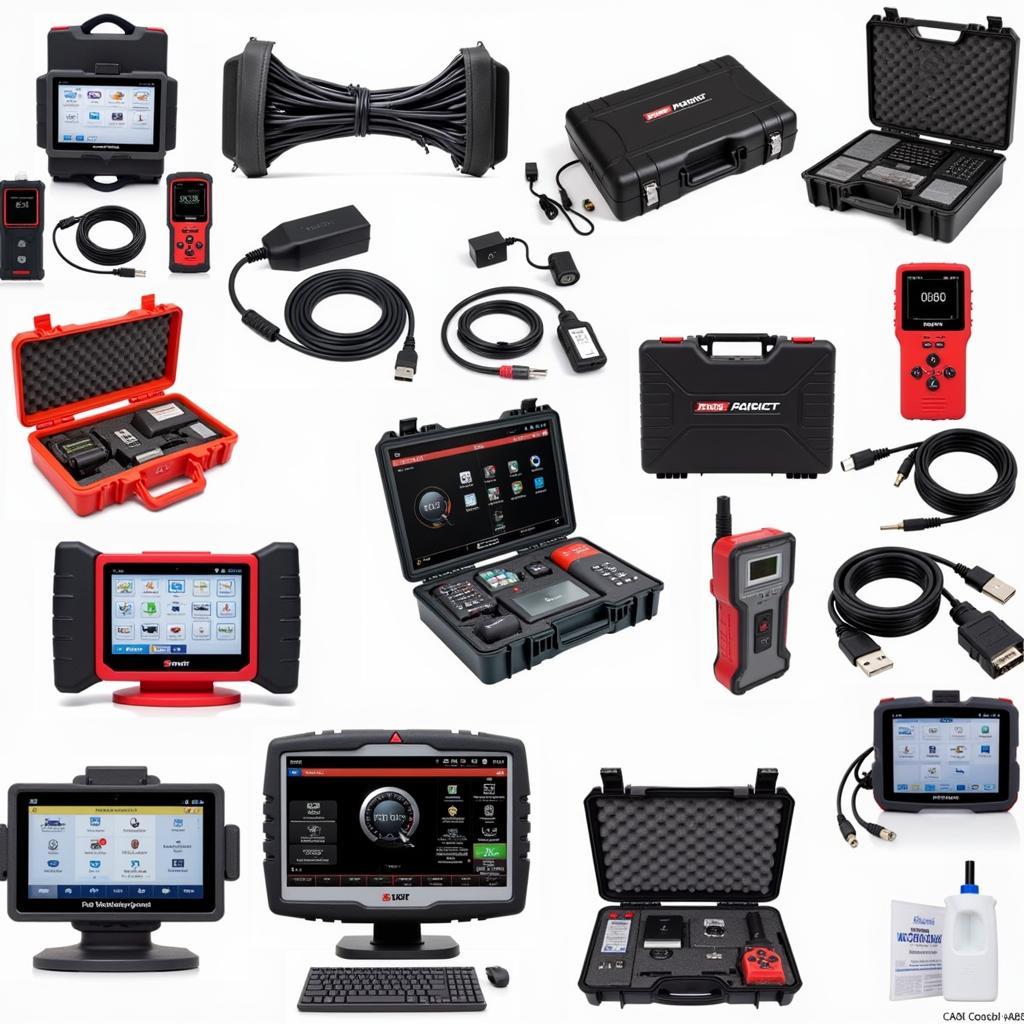The Increased Likelihood Of Recommending Tools Used Early In Career is a fascinating phenomenon observed across many industries, particularly prominent in the automotive diagnostic field. This tendency stems from a combination of factors, including familiarity, comfort, and early positive experiences. We’ll explore the reasons behind this trend and its implications for both technicians and tool manufacturers.
The Power of First Impressions: Why Early Tools Matter
Early career experiences shape a technician’s preferences and work habits. The tools they first use become their baseline, their comfort zone. These initial encounters often create a strong sense of familiarity and trust, which can significantly influence future tool choices.
- Familiarity breeds comfort: Using a specific scan tool or diagnostic software early on builds proficiency and reduces the learning curve for future use. Technicians become accustomed to the interface, features, and workflow, making them less inclined to switch to unfamiliar alternatives.
- Early successes build confidence: Positive experiences with a particular tool during the formative stages of a career reinforce its perceived value. Successfully diagnosing and fixing a vehicle using a specific tool creates a positive association, making technicians more likely to recommend it to others.
- Limited exposure: Early career technicians may have limited exposure to the wide range of diagnostic tools available. This lack of experience can lead them to stick with what they know, even if better options exist.
- Mentorship and training: Many technicians learn from experienced mentors who often recommend the tools they themselves prefer. This can perpetuate the use of certain tools across generations of technicians.
 Early Career Technician Using a Scan Tool
Early Career Technician Using a Scan Tool
Breaking the Mold: Exploring New Diagnostic Technologies
While the comfort of familiar tools is understandable, it’s crucial for technicians to stay updated with the latest advancements in automotive diagnostic technology. The automotive industry is constantly evolving, and clinging to outdated tools can limit a technician’s effectiveness and career growth.
- Embracing continuous learning: The best technicians are those who embrace lifelong learning and stay abreast of new tools and techniques. This includes attending training sessions, reading industry publications, and actively seeking out new information.
- Evaluating new technologies: Technicians should periodically evaluate new diagnostic tools to see if they offer advantages over their current equipment. This could involve attending trade shows, demoing new software, or researching online reviews.
- Considering specialized tools: As vehicles become increasingly complex, specialized diagnostic tools are becoming essential for efficient troubleshooting. Technicians should consider investing in tools that cater to specific makes and models or address particular diagnostic challenges.
The Role of Tool Manufacturers in Shaping Perceptions
Tool manufacturers play a significant role in shaping technicians’ perceptions and preferences. By providing comprehensive training, support, and user-friendly interfaces, they can foster brand loyalty and encourage recommendations.
- Investing in user education: Manufacturers should invest in training programs and resources that help technicians effectively utilize their tools. This includes online tutorials, webinars, and in-person workshops.
- Providing excellent customer support: Responsive and helpful customer support can significantly impact a technician’s experience with a tool. Quick resolution of technical issues and readily available assistance can build trust and foster positive word-of-mouth recommendations.
- Developing intuitive interfaces: User-friendly interfaces and intuitive software design are crucial for attracting and retaining users. Tools that are easy to learn and use are more likely to be recommended by technicians.
“Early adoption of a specific diagnostic tool can significantly impact a technician’s long-term preferences,” says John Smith, Senior Automotive Diagnostic Technician at ABC Auto Repair. “It’s like learning a language – the first one you learn often becomes your most comfortable.”
 Automotive Diagnostic Tools Display
Automotive Diagnostic Tools Display
Conclusion
The increased likelihood of recommending tools used early in career is a complex phenomenon driven by familiarity, early success, and limited exposure. While comfort with familiar tools is important, it’s essential for technicians to stay open to new technologies and continuously evaluate the latest advancements in automotive diagnostics. This will not only enhance their skills and effectiveness but also contribute to the ongoing evolution of the automotive repair industry. By understanding the factors that influence tool preferences, both technicians and manufacturers can make informed decisions that benefit the entire automotive ecosystem.
FAQ
- Why do early career experiences influence tool preferences? (Familiarity and early successes build confidence.)
- How can technicians stay updated with new diagnostic technologies? (Continuous learning and evaluation of new tools.)
- What role do tool manufacturers play in shaping perceptions? (Providing training, support, and user-friendly interfaces.)
- Why is it important for technicians to explore new tools? (To enhance skills and stay competitive in a rapidly evolving industry.)
- What are some examples of specialized diagnostic tools? (Tools specific to certain makes/models or addressing particular diagnostic challenges.)
- How can I learn more about the latest diagnostic tools? (Attend trade shows, demo software, read industry publications.)
- What are the benefits of using user-friendly diagnostic tools? (Ease of learning, increased efficiency, and higher likelihood of recommendation.)
Need help? Contact us via WhatsApp: +1(641)206-8880, Email: [email protected] or visit us at 910 Cedar Lane, Chicago, IL 60605, USA. We have a 24/7 customer support team.

Leave a Reply